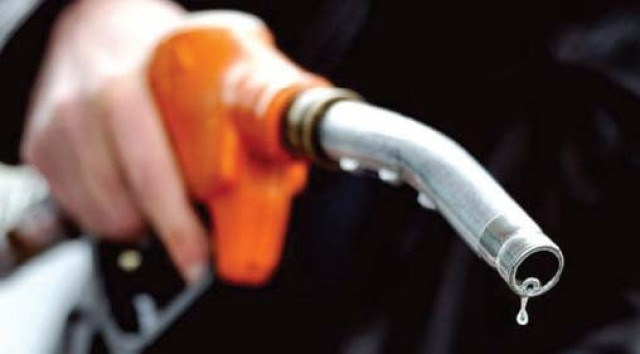Judgement: ECC defers decision on weekly oil price review
OGRA argues it can lead to oil shortage and overcharging.

The Economic Coordination Committee (ECC) of the cabinet on Tuesday deferred a plan to review oil prices on a weekly basis after the Oil and Gas Regulatory Authority (Ogra) highlighted the likely consequences of such a decision including oil shortage and overcharging for petroleum products.
According to sources, Ogra Chairman Saeed Ahmad Khan opposed the weekly review plan in order to protect and safeguard the interests of consumers.
Ogra authorities told the ECC that the regulator was receiving several complaints about oil shortage and overcharging after implementation of a fortnightly price review mechanism.
“Weekly price review will encourage the profiteers to fleece consumers by overcharging,” sources quoted an Ogra representative as saying.
However, Adviser to Prime Minister on Petroleum and Natural Resources Dr Asim Hussain argued that Ogra was a regulator and not a policy-maker, hence, it should keep focus on its role as a monitor.
The current fortnightly price revision had also come into force on the petroleum ministry’s recommendation, when ECC approved the proposal in the first week of April. In its recommendation, the ministry, on the insistence of oil refineries, said continuous rise in the international crude market called for a shift from monthly to fortnightly price revision.
Finance Minister Dr Abdul Hafeez Shaikh backed Ogra, saying “we should first assess results of the fortnightly oil price revision before moving towards weekly revision”.
Shaikh expressed concern over oil shortage and overcharging in the wake of fortnightly price reviews. He called for undertaking steps to deal with the issue.
Freight margin
For Tuesday’s ECC meeting, the Ministry of Petroleum had also proposed deregulation of transportation charges for high octane blending component (HOBC), a fuel which is mostly used in luxury vehicles and costs more than petrol and diesel. However, no decision was taken on this proposal too, which would have resulted in different prices of HOBC across the country.
Earlier, the government had planned to deregulate transportation charges for all petroleum products, but a key political party resisted the move, saying it would lead to higher prices in Khyber-Pakhtunkhwa. It even threatened to pull out of the coalition government if freight margins were deregulated.
“The step to deregulate freight margin on HOBC may also face resistance from the same party as it will bring down prices in Karachi and Multan and drive up rates in Khyber-Pakhtunkhwa and other northern areas,” a senior government official said.
“The country’s HOBC consumption ranges from 10,000 to 12,000 tons per year and rich people can afford extra burden,” the official remarked.
Published in The Express Tribune, July 4th, 2012.



















COMMENTS
Comments are moderated and generally will be posted if they are on-topic and not abusive.
For more information, please see our Comments FAQ